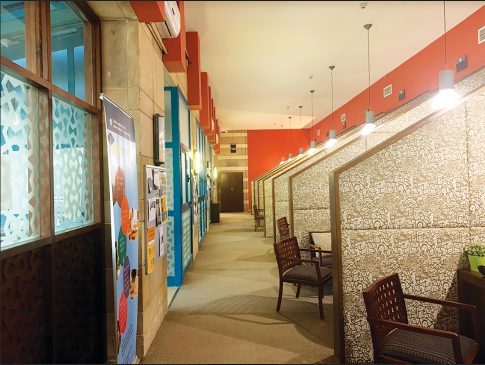
The Academic Advising Center has formalized an amendment to the advising system for undeclared students, after testing it out on 80 percent of freshmen in Fall 2018, in the hopes of enhancing their advising process.
The Associate Provost for Strategic Enrollment Management at AUC Ahmed Tolba and Academic Advising Center Manager Noha Saada said that the modifications were designed to guide students through a more efficient and rewarding undergraduate experience.
Tolba said that the Advising Center is now focusing on ensuring that students understand the process itself, involving them in determining their undergraduate plan, and steering away from merely seeking a signature confirming that their advising had been completed.
“We [are now trying] to regain the trust of our students in advising, so that they benefit from the session,” explained Tolba.
The academic advising staff formed a focus group and distributed surveys to students to learn about the strengths and weaknesses of the Advising Center and the advising process itself.
Saada explained that the new approach at the Center begins with personalized appointments instead of students receiving waiting numbers.
Undeclared students who come for the first advising session will wait in the reception area until an adviser personally greets them and takes them to their office.
Saada said that after testing this approach, students appeared more comfortable and relaxed during the session.
They were more willing to ask questions and to learn about their options. Saada also said that advisers were now using a uniform script for all of the sessions to ensure fairness.
“Students [previously] said that there is non-uniformity among the advisors. A student can go to one advisor and find [the session] good and then go to another one and find it bad, they don’t provide the same kind of service,” said Saada.
The Center is also offering a checklist to students that includes things to do before they meet with their adviser, as well as information about the session content and its learning outcomes.
Advisers will also offer students a contacts list of professors and staff who can answer specific questions about their departments and courses which may not have been addressed by the adviser.
Advisers will also work closely with students who wish to take multiple minors and/or additional majors.
“If students have a lot of electives, we [inform them] that there is an opportunity to double major,” Saada said.
The staff will also provide students with different calendars of events and schedules, such as the dates of exemption exams, and the Coaching and Learning for Success planner to help them utilize their time efficiently.
“This office is an integrated part of an integrated network that offers services to students,” said Saada.
The Center carried out a survey to evaluate the new services following their initial roll out and found that the majority of the responses were positive.